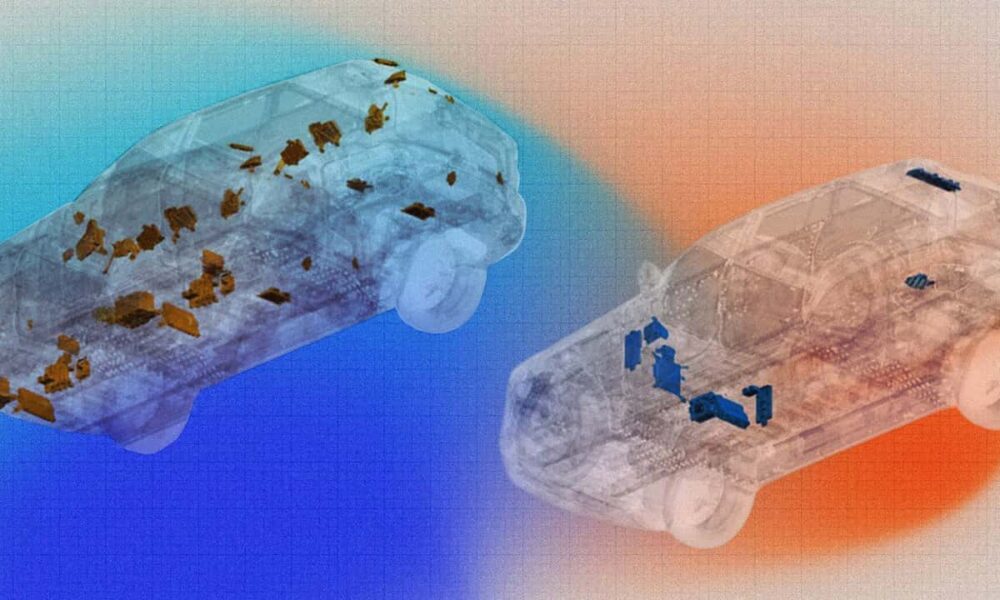BREAKING: General Motors (GM) has just announced a revolutionary shift in automotive technology that will dramatically transform both electric and gas-powered vehicles. During the GM Forward tech event in New York City, executives revealed plans for a groundbreaking centralized compute architecture set to debut with the Cadillac Escalade IQ in 2028. This innovative system aims to streamline vehicle functionality and enhance performance across GM’s entire lineup.
As the automotive industry grapples with shifting consumer preferences and environmental concerns, GM’s strategy acknowledges that many vehicles will still operate on gasoline. By employing a propulsion-agnostic approach, GM intends to integrate advanced software and features into its gas vehicles, similar to the technologies found in cutting-edge electric cars.
David Richardson, GM’s Senior Vice President of Software and Services Engineering, stated, “In 2028, we’ll launch our next-generation centralized compute system…the payoff is massive.” This ambitious move signals a significant evolution in how traditional gas-powered cars are designed and maintained.
The new architecture simplifies the complexity of vehicle electrical systems, which historically relied on numerous separate modules that led to inefficiencies and higher costs. GM’s centralized system reduces the number of vehicle modules by merging them into a few compact units that manage all vehicle functions, including connectivity and sensor data.
Gary Cygan, GM’s Director of Platform Engineering, explained how the new system eliminates the need for standard fuse boxes, replacing them with more efficient aggregators that enhance the vehicle’s ability to receive software updates and new features over time. “We’ve moved away from standard fuse boxes…we’re adding compute upgrades, connectivity upgrades, and vehicle communication upgrades,” he said.
This shift means consumers can expect lower maintenance costs and greater reliability in their vehicles, as fewer components lead to fewer potential failures. Moreover, the new architecture promises to deliver a vehicle experience that is “always up to date,” with GM planning to deliver ten times more software updates than previous systems.
The urgency of this announcement cannot be overstated. With EV sales slowing and tax incentives dwindling, GM is positioning itself to cater to a diverse market that includes both electric and traditional gas vehicles. The implications for consumers are profound, as these innovations could lead to more cost-effective, energy-efficient vehicles that still meet the demands of today’s drivers.
While the centralized compute architecture initially launches with the Cadillac Escalade IQ, GM intends to roll it out across its entire model range, enhancing current models without requiring a complete redesign. This adaptability may improve repairability and reduce downtime for consumers, as diagnosing issues becomes simpler with fewer components involved.
In light of the competitive automotive landscape, GM’s commitment to integrating advanced technologies into gas vehicles reflects an understanding of the complex market dynamics at play. As the company embraces robotics, AI, and autonomous driving capabilities, it must also ensure that its gas-powered models remain relevant and appealing to consumers.
As GM prepares for this pivotal transition, the automotive world will be watching closely. Will this innovative architecture fulfill its promises and reshape the future of gas cars? The next few years will undoubtedly reveal the answers, as GM continues to meld the worlds of electric and gasoline-powered vehicles.
Stay tuned for further updates on this developing story, as GM’s bold move could set new standards for the automotive industry.







